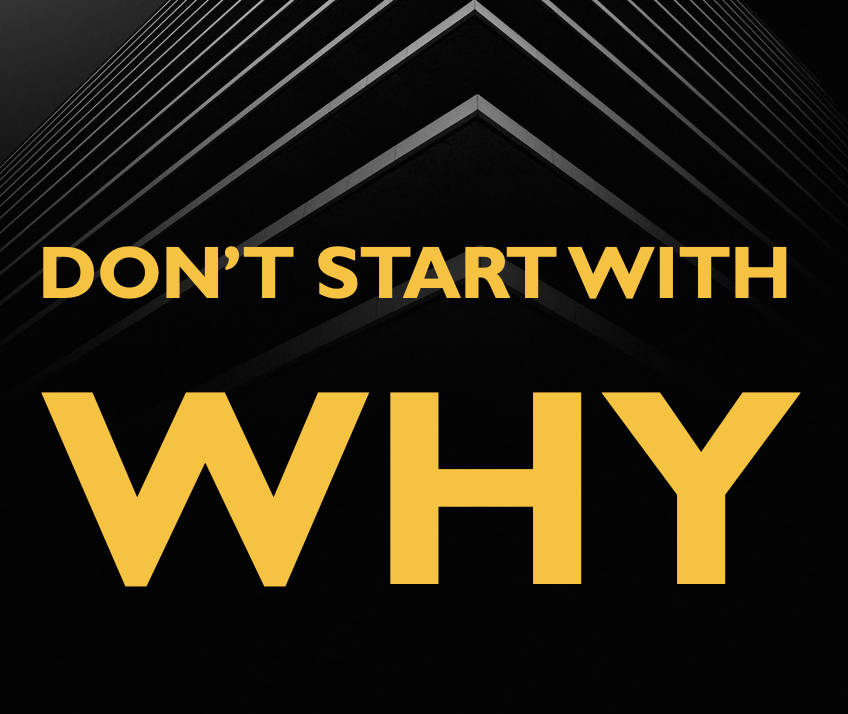
I had a nice chat with a LinkedIn friend who said he was working on a client marketing strategy by using the Simon Sinek model of determining the company’s “why.” But this makes no sense.
This “why” idea comes from Simon’s book called Start with Why: How Great Leaders Inspire Everyone to Take Action.
This book is more than famous. It’s a sensation. The “start with why” movement began in 2009 when Simon did a TEDx (and later TED) talk on this subject, suggesting that people won’t truly buy into a product, service, or idea until they understand the WHY behind it.
Simon Sinek is awesome. He is a great writer and speaker. But … when it comes to most practical marketing, this idea is patently false.
The truth behind why
For 99 percent of the products I buy, I have no idea what “the why” is. I’m not being flippant or disrespectful. It’s just true.
- I bought a hamburger because I’m hungry and they taste good.
- I bought a new racquetball racquet because I wanted a better chance at beating my friend.
- I bought new plants from a little garden center (and even paid more) just because it’s close to my house and saved me time.
- I have a company cut my lawn because I would rather be blogging. Or doing anything.
- I buy Excedrin Migraine Relief because it was recommended by a friend and it works really well when a headache is beginning. Off the top of my head, I cannot name the company that owns the Excedrin brand, let alone know their “why.”
- I buy car insurance because it is a legal requirement to do so and I don’t want to break the law.
… In other words, it’s all about me, and my why. Not a business why, MY WHY.
A reality check
Try it yourself. What percent of all the products you bought last week were driven because you’re attracted by the company’s “purpose” or “why?” Probably zero.
It’s time to break out of this guru bubble.
People don’t really know or care about your why. They usually only care about THEIR WHY.
(PS I realize there are exceptions. There always are. The answer to every marketing question is: “It depends.” But generally speaking, I am correct here!)
Another view
Byron Sharp, director of the Ehrenberg-Bass Institute and long-time critic of brand purpose, argued that from a branding perspective a company going down this “why” route leads to lazy marketing.
“As a marketer, I worry that it leads to the sort of advertising a 12-year-old kid would come up with in a high school assignment. ‘Buy this brand because it will help children in Africa’. If all brands do that it’s very boring and not creative. It’s not branding,” said Sharp.
He said marketers should instead have more self-confidence and belief in the good marketing does in the world by itself without seeking a higher purpose.
“There’s a cultural cringe in marketing, a sort of insecurity. On one hand, there’s a feeling that general management and the CEO, and the CFO don’t take marketing seriously. On the other hand, there’s a feeling that people on the street or friends at dinner parties see the profession as dubious,” he continued.
However, Sharp branded marketing and the market economy an “amazing” system, which has “lifted millions of people out of poverty.”
Conclusion
I know this advice sounds unconventional with all the hype about purpose-driven marketing, but doggonit, sometimes I just want to buy something without wading through branded content. Why can’t anything just be normal? Why does it have to showcase your “why?”
Let’s stop the navel-gazing in our marketing and get out there and talk to some customers. Make your customers — and their why — the centerpiece of your story and your brand.
Follow Mark on Twitter, LinkedIn, YouTube, and Instagram.
Illustration courtesy Unsplash.com
